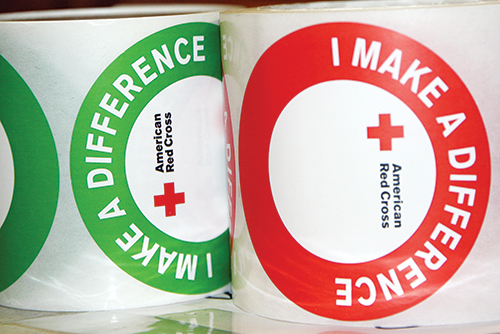
The American Red Cross has been subject to continued controversy in recent years over its policy of excluding blood donations from all MSMs, or men who have had sex with men. By hosting Red Cross blood drives on campus, Portland State is condoning blatant discrimination against gay students and faculty.
Back in 1985, the Federal Drug Administration made the choice to ban blood donations from men who have sex with men. The HIV/AIDS epidemic that spread across the U.S. caused emergency action to be taken to stop the spread of the virus through blood transfusions.
Three decades later, the FDA still refuses to remove the ban despite major advances in HIV testing. This is the same organization that allows men who have gotten down with a prostitute or bumped uglies with a woman known to be infected with HIV/AIDS to wait only 12 months before being eligible to donate blood again.
It boils down to this: A healthy, MSM PSU student who’s engaged in safe sex with another healthy man can’t donate blood, while a heterosexual PSU student who bangs prostitutes and sleeps with HIV/AIDS-infected women can.
Somehow, these policies don’t scream safety to me. “Bigotry” or “homophobia” are better word choices for the FDA’s attempts to defend its outdated blood-donation edicts. Considering the fact that the Red Cross now checks all blood donations for HIV/AIDS, it seems especially discriminatory to put out a blanket ban on a specific group of very diverse individuals.
Not allowing any MSMs to donate is ridiculous. It excludes individuals who don’t engage in the stereotypical lifestyle of unsafe sex with innumerable partners—a lifestyle that heterosexual men and women also engage in. The only difference is that heterosexuals, lesbians and bisexual ladies can donate blood; gay, bisexual or bi-
curious men can’t.
Other countries endeavor to keep their blood recipients safe by screening for behavior, not sexual orientation. Spain and Italy both ask screening questions that identify high-risk behavior instead of omitting entire demographics of potentially healthy donors.
It’s as if America thinks of all gay men as some diseased group of lepers that should be excluded because some members have HIV or AIDS. For the same reason the FDA doesn’t discriminate against black or Latino Americans, it shouldn’t exclude gay Americans. Age, where you live and whether you’ve previously gotten a blood transfusion can all play a role in raising your risk of infection, but only a select demographic of men are barred from donating blood.
PSU’s mission webpage proclaims that it creates a “climate of mutual respect” and prohibits discrimination based on sexual orientation. If we are going to uphold those values, we can’t allow onto our campus those blood drives that only allow some students to donate.
Yes, the Red Cross saves lives and supplies around 40 percent of the nation’s blood donations. The benefit to our society isn’t in question. What is in question is how, no matter how many lives are saved, can the FDA and Red Cross justify practices discriminating against the gay community. Sadly, the answer seems to be that it doesn’t matter—because of the risk, you know.
It’s easy to rationalize what the FDA and Red Cross are doing here; it seems logical that we should keep high-risk cases out of the blood bank because it’s just too expensive to try to accommodate every donor, and it’s easy to label all MSMs as high-risk.
It’s easy until you start thinking about the individual faces you know from your classes, work and around town; the bright young students who lead healthy lives and make responsible choices; the guys who have the same tuition concerns, homework stress and coffee addiction that you have.
If it were up to you to tell these classmates that they couldn’t donate to save a life because of who they cuddle with in bed at night, would you feel differently?
There comes a point at which liberty needs to overrule the supposed logic behind discrimination, when the equal treatment of all Americans needs to be considered sacred. By hosting Red Cross blood drives, PSU allows many of its students and faculty to be shamed and alienated.

